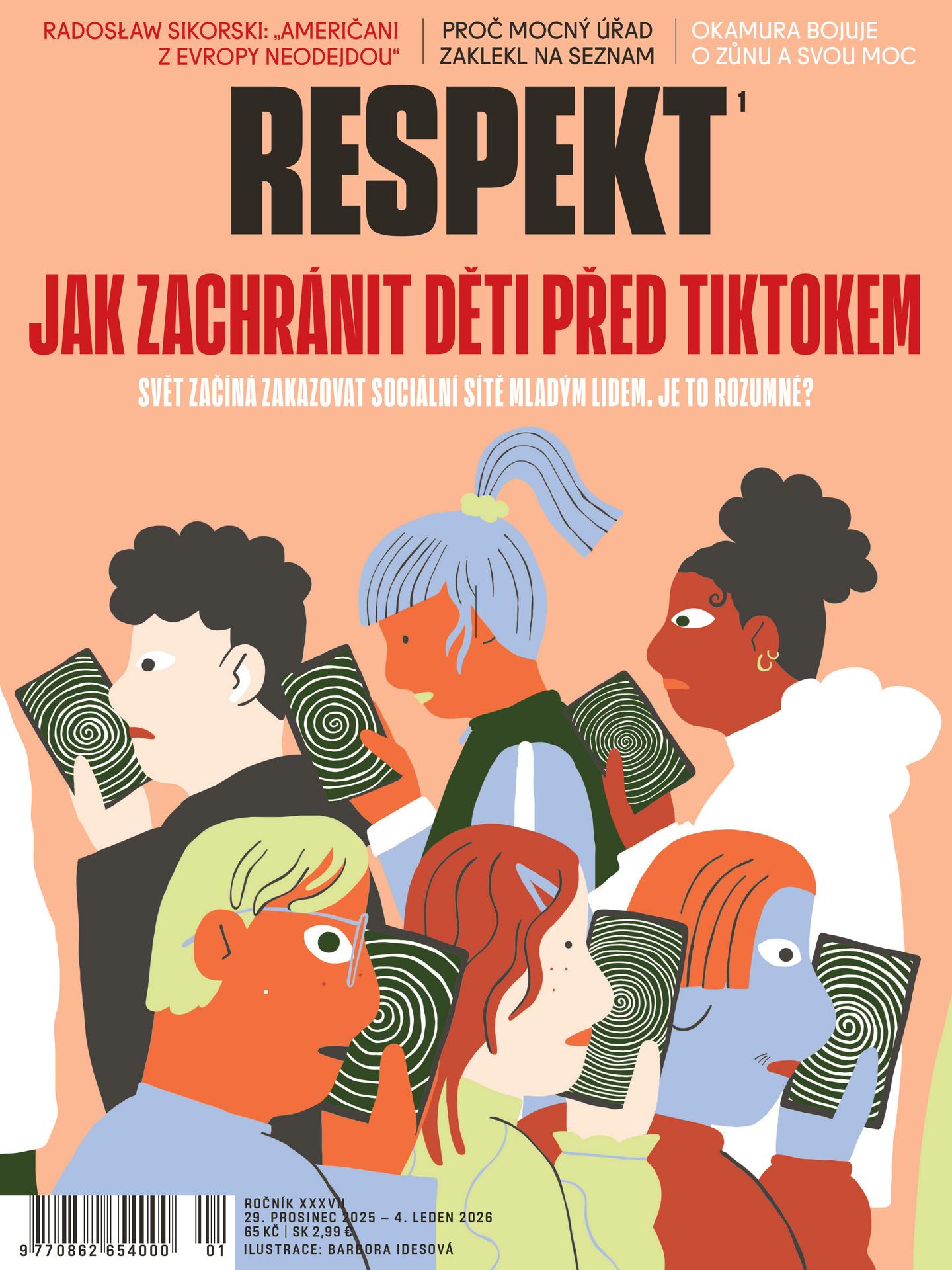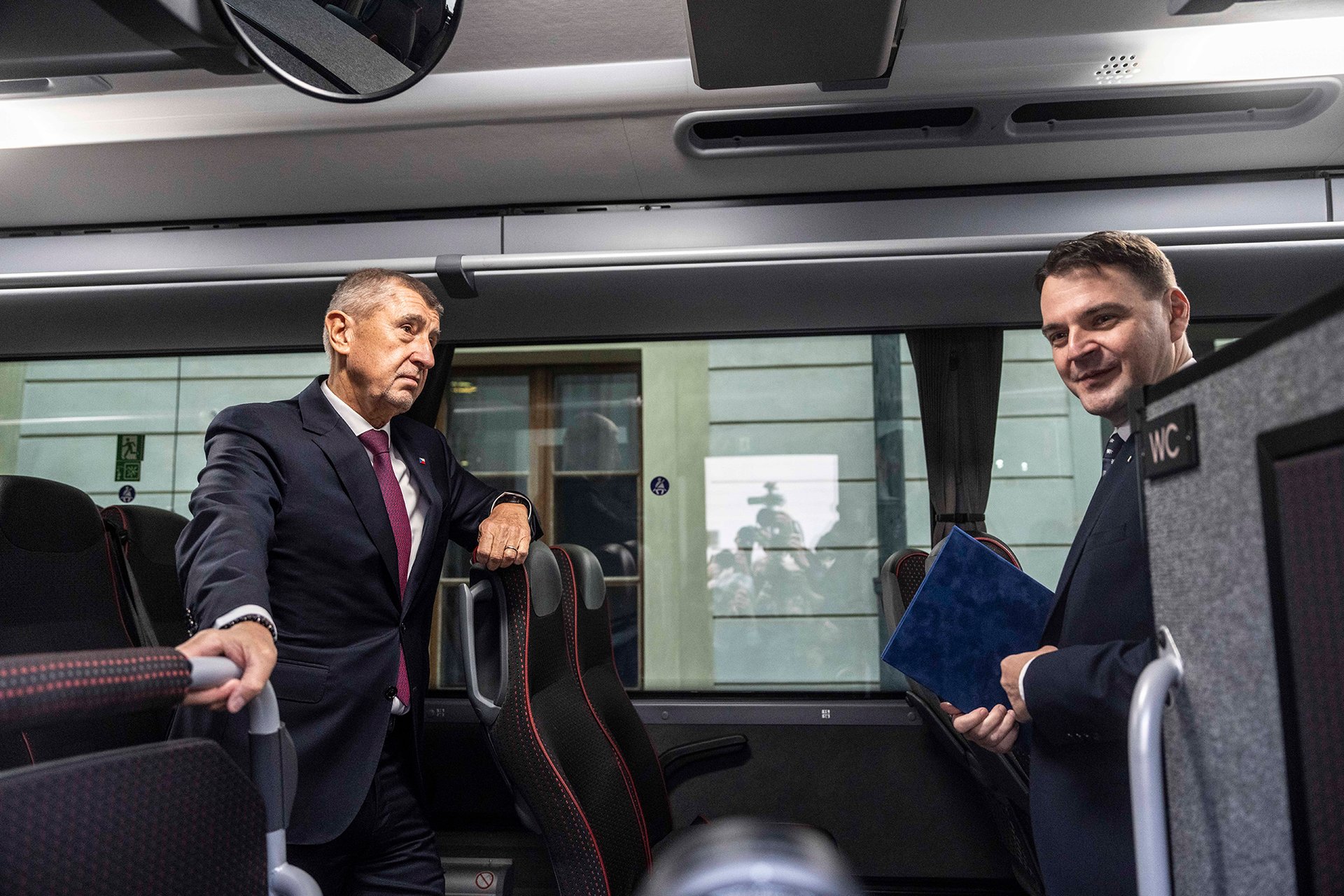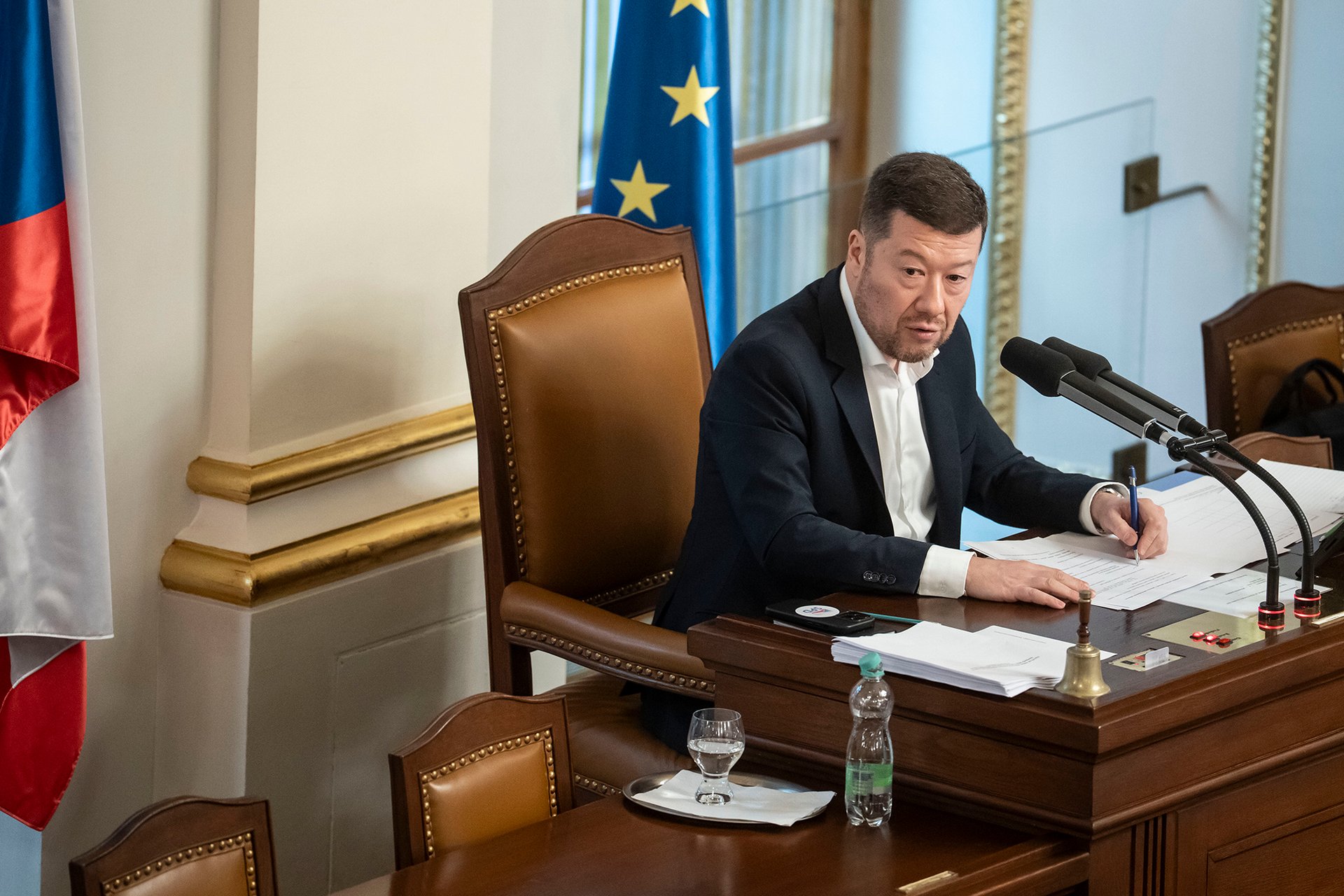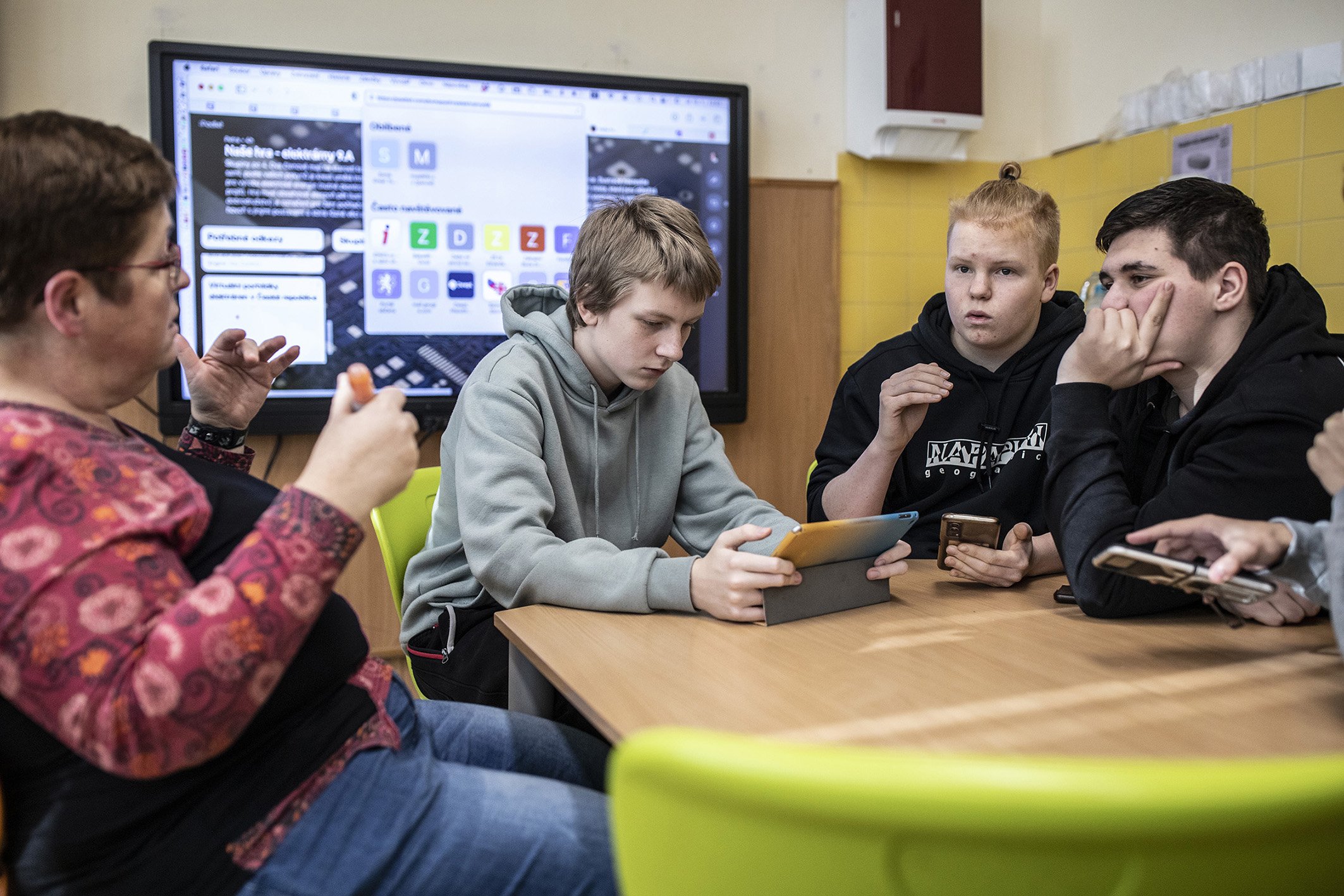Where the godfathers stayed
The police’s toughest task still waits

Translated by Lani Seelinger
The order was always the same: Monaco. In the last few months, the pilot of the Nextant 400XT plane heard it directly from Ivo Rittig four times, always with only minimal advance notice. For a long time, the well-known Prague businessman had had informers who were supposed to warn him if anyone from the Unit for Combating Organized Crime (ÚOOZ) was getting close to apprehending him. As soon as the informers voiced the suspicion that it was coming this time, he would immediately make for Ruzyně Airport, where a primed jet would already be waiting for him.
The final destination didn’t change, because Rittig has been a reported resident of Monaco for a while, and he also has a suite in one of the luxurious seaside resorts. The businessman was even supposed to head there shortly before the police raid that ÚOOZ carried out the week before last. This time, the warning that “they’re getting something ready” turned out to be true.


Just as with the other businessman, Roman Janoušek (who was also abroad at the time of the raids), the police are convinced that thanks to their contacts in the highest levels of power in the state, they appropriated many public contracts and are getting richer on them in a way that is in contradiction to the law.
Janoušek’s return
Although police carried out thorough searches of their houses and offices, Roman Janoušek and Ivo Rittig have not yet been charged with anything. For now, we don’t know what exactly the police found and whether it could lead to charges for both suspected men. In any case, when Roman Janoušek returned to Prague from Zadar in Croatia, he was not taken into custody. “I just landed at Havel Airport. I don’t know what’s going on here, I’m quickly trying to get my bearings,” said Janoušek to Respekt. “Anyway, I’m at the police’s disposal,” he said. After these words, the call broke off.
According to the documents that Respekt has available and the statements of knowledgeable sources from the security sectors, the detectives came into the raid in the middle of June with certainty. 18 months of tracking, wiretapping rooms and phone calls, recording meetings on video – all of this provided the detectives with a relatively exact knowledge of how the suspects worked, how they agreed on business matters, which accounts or safe deposit boxes the money from the transactions that were of interest to the police was going into, and where they were storing documents, contracts, or, for example, gold.
From the instruction ordering the home searches (which Hospodářské noviny was the first to inform about), it is probable that they should involve four people in the allegedly massive corruption, criminal collusion, and money laundering – Janoušek, Rittig, former assistant to the Supreme State Prosecutor Libor Grygárek, and until last week publically unknown right hand man of Ivo Rittig, Václav Ryba. In the search order, police state that it concerns an “organized criminal group, which has for a long time assigned roles and been perpetrating criminal economic activities.”
In connection with the four suspects – numerous people are tied to them, and the polices are also investigating them – the police are looking into roughly 60 concrete contracts. The Prague Municipal Authority, Lesy ČR, ČEZ, the General Health Insurance Company, some ministries, or, for example, the Road and Motorway Directorate of the Czech Republic. The police gained their information about possible corruption namely from wiretaps and monitoring Rittig and Janoušek. Now, detectives have knowledge of many people who took part in manipulating the contracts and later money laundering.
The principle was very similar to what we already know from the case of former regional council president David Rath. The price of the contracts was raised by the sum of “bribes,” which were later complicatedly brought out through several firms and then split up by the corrupt people.
A concrete case can describe it: during the raid, the police requested the complete documentation for 30 public contracts assigned in the last three years at the Prague Municipal Authority. The total price of the contracts was one and a half billion crowns. Besides the building contracts, the victorious companies don’t have anything in common at first glance. In actuality, the name Roman Janoušek, or the people surrounding him, connects them.
Based on information found in the wiretaps and from the monitoring, police reportedly believe that Janoušek played a big role in selecting the winner of the contracts. For this he had to use extraordinary contacts at the Municipal Authority. Allegedly, the investigators know the number of the account where the fees for helping during the selection process went to Janoušek. Ivo Rittig had to run a similar endeavor at, for example, Lesy ČR.
Then, according to the police, Grygárek had to cover Janoušek and Rittig’s backs in case of an emergency. As a senior state prosecutor, he had to help them if the police were going to try to investigate. And in at least one instance –the inquiry into the origin of Janoušek’s two million crowns that were put into a Swiss Bank – Grygárek really took part in covering up the case.
A fish in the net
Why, then, have some of the godfathers still not been charged? For a long time, the police didn’t have any direct evidence that would convict anyone of corruption or participation in manipulating the choices of the winners of the contests. The majority of the money came from a number of firms, often only by empty boxes in tax havens, and in the end they were paid by companies that didn’t have anything in connection with the contracts. Primarily, to someone around the aforementioned “godfathers,” as, for example, a consultation fee.
For one thing, relatively high amounts of money were moving into and out of Rittig’s domestic bank account – police are still investigating where it was coming from and where it was going. They are also trying to figure out why Rittig takes four million crowns (in conversion) as a consultation fee from certain firms based in the US.
Another way of handing over “fees” went through safe deposit boxes. Because of this, in addition to the aforementioned raid, the police also searched these safe deposit boxes, finding 150 million crowns and many kilograms of gold. We don’t know who was supposed to have access to everything in the boxes, but the available documents in connection with this only named Václav Ryba. According to unofficial police information, the money and gold belonged mainly to Janoušek. Ryba, then, could have been connected with him somehow. Janoušek denies possession of the contents of the boxes, but in answer to a question from Respekt about whether the confiscated funds belonged to one of his coworkers, the businessman answered, “I am soaking up the information.”
Besides money and gold, the police reportedly found a lot of new evidence during the raid. From the documents, it’s possible to track down at least thirty contracts that might be related to the new evidence. It isn’t possible to figure out when it’s Janoušek’s work and when it’s Rittig’s, and naturally, neither the police nor the prosecutors want to disclose this information. “Šlachta and Ištvan aren’t just hacking at the octopus’ tentacle this time, they’re going directly for the head,” said a person privy to the investigation.
Respekt wanted to give not only Janoušek but also Rittig and Grygárek a chance to make a statement. However, not even one of them answered. 71-year old Václav Ryba, who has worked with Rittig for 15 years at various firms, reportedly likes to go to the well-known Prague restaurant U Hrochu. “Yeah, Vašek, he comes here, he was here the day before yesterday,” says a guest from Ryba’s corner table for regulars. Václav Ryba didn’t make it this evening, however, and no one answers the bell at the apartment on Vlašská Street not far from the pub.
Who further
From the moment when the order was issued for the biggest police raid in the upper spheres of the country’s politicians and with them the connected, opaque world of the lobbyists, Olomouc supreme state prosecutor Ivo Ištvan, according to his own words, never once had doubts. Not even after the investigation swept Prime Minister Petr Nečas up, and with him the whole government. “We have legal grounds for everything that we’re doing,” declared Ištvan in his spacious office. “We have a clearly established strategy, and we’re proceeding according to it.”
Nonetheless, it’s not completely clear why detectives have already had to edit the plan a few times. Originally, the police and prosecutors opened the investigation because of the alleged unlawful activities of the godfathers. However, different fish have gotten stuck in the net for other punishable offenses, like for example the chief of staff of the prime minister’s cabinet Jana Nagyová, and the people because of whom the operation got started a year and a half ago are walking freely around the streets.
The cases allegedly can’t be separated, though. ÚOOZ reportedly had enough information to charge Nagyová for taking part in bribing the deputies by March. The detectives intentionally postponed the action’s launch, though, because of the concurrent investigations of Rittig and Janoušek. From the wiretaps, ÚOOZ knew that Nagyová regularly met with the first of them (according to a few sources, Nagyová had specified times in her planner for regular meetings with Rittig – two hours every week) and that she was in contact with the second. If they had done the raid too early in one case, they would have endangered the investigation of the second. They decided later to raid simultaneously so that no one had time to destroy the evidence.
However, detectives haven’t charged Janoušek or Rittig with anything even after the raid. According to experts in police procedure, it is probably part of a thought-out plan – detectives are waiting to see if both men will make a mistake in the coming days that could bring them still more evidence. Although ÚOOZ confiscated 150 million crowns during the raid, it also has knowledge of more money that could also have come from illegal actions. They are now focusing on uncovering that.
Simultaneously, detectives are analyzing thousands of confiscated pages of various contracts, documents, and invoices. The police have many hours of recorded wiretaps. At ÚOOZ, a team of ten detectives reporting directly to Robert Šlachta is now working on these issues. A similar process is taking place at the state prosecutor’s office, where each deputy has his role exactly specified. Today, Šlachta is in one round. This investigation is introducing him to all corners of the republic. On Monday he was in Prague, on Tuesday in Brno, on Wednesday in Ostrava, and on Thursday the investigation took him to České Budějovice.
While only Ivo Ištvan communicates with the media so that his people have enough time for work and so that he can protect them against various pressures, Ostrava prosecutor Rostislav Bajger and his colleague Martin Brzobohatý are working directly in the field. There is an analytical team of five more state deputies to help them at the Supreme Prosecutor’s Office. The key question, of course, is what the police have against the so-called godfathers in hand, and how much it would stand up in a potential trial. Studying the confiscated materials could reportedly take a few weeks to a month, and then, according to well-informed sources from the circle of security services, a further group of charges will arrive into the ranks.
The text was originally published in Respekt magazine 26/2013
Článek Kde zůstali kmotři vyšel v Respektu č. 26/2013
Pokud jste v článku našli chybu, napište nám prosím na [email protected].










